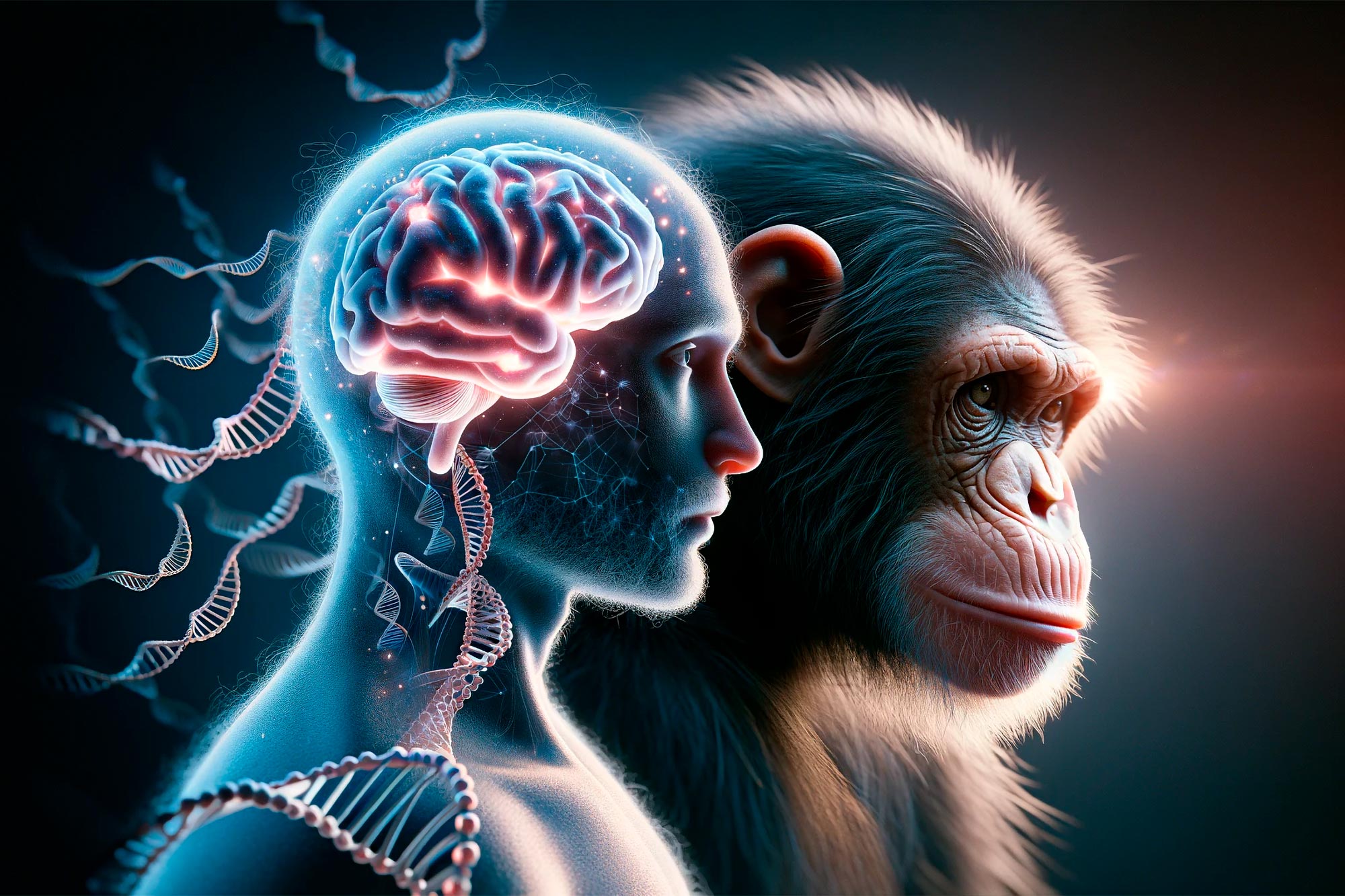The Evolution of the Human Brain: What Makes Us Unique?
 The human brain is often heralded as the pinnacle of evolution, a marvel of biology that has enabled our species to dominate the planet. But what exactly makes the human brain so unique? Recent advances in neuroscience have provided new insights into the specific genetic, cellular, and structural attributes that set our brains apart from those of other species, particularly our closest primate relatives.
The human brain is often heralded as the pinnacle of evolution, a marvel of biology that has enabled our species to dominate the planet. But what exactly makes the human brain so unique? Recent advances in neuroscience have provided new insights into the specific genetic, cellular, and structural attributes that set our brains apart from those of other species, particularly our closest primate relatives.
This article delves into these discoveries, exploring how evolutionary changes have sculpted the human brain into a highly complex organ capable of language, abstract thinking, and advanced problem-solving.
Genetic Divergence: The Blueprint of Human Cognition
At the core of our cognitive abilities lies a unique genetic blueprint. A growing body of research has identified hundreds of genes that are not only unique to humans but have also undergone significant evolutionary divergence. For instance, studies have pinpointed 139 genes that are common across primates but show human-specific patterns of expression, particularly in brain cells like neurons and glial cells.
These genes are believed to have evolved under relaxed selective pressure, allowing for rapid adaptation and the development of higher cognitive functions without compromising basic survival traits.
One of the most intriguing genetic discoveries involves the FOXP2 gene, often dubbed the "language gene." While versions of FOXP2 are present in other species, its expression in human brains, particularly in regions linked to speech and language, is markedly different. This variation has been linked to our unique ability to produce and understand complex language structures, a key factor that distinguishes us from other primates.
Cellular Complexity: A Deeper Look at Brain Architecture
Beyond genetics, the cellular architecture of the human brain reveals further distinctions. Advanced techniques like single-cell RNA sequencing have uncovered differences in brain cell types between humans and other primates. For example, the dorsolateral prefrontal cortex (dlPFC), a brain region crucial for higher-order cognitive functions, contains unique cell types in humans that are not found in other primates. These cells, including certain types of microglia (immune cells in the brain), play critical roles in brain maintenance and have been linked to both cognitive abilities and neuropsychiatric disorders.
Another significant discovery relates to oligodendrocyte progenitor cells (OPCs), which are more abundant in the human brain compared to those of other primates. OPCs are precursors to cells that provide insulation to neurons, aiding in faster and more efficient signal transmission. This abundance in humans suggests an evolutionary advantage in neural processing speed and complexity, possibly contributing to our advanced cognitive functions.
Brain Plasticity: The Lifelong Learning Engine
The concept of brain plasticity—our brain's ability to adapt and reorganize itself—has also been identified as a uniquely human trait. While all mammals exhibit some degree of neural plasticity, the human brain's capacity for learning and adaptation is unparalleled. This is partly due to a prolonged period of brain development, which extends well into adulthood.
The presence of pre-oligodendrocytes, cells that have not yet fully matured, in adult human brains, is a testament to our brain's continuous ability to adapt and learn. These cells allow for greater flexibility in response to new experiences and injuries, enabling lifelong learning and cognitive resilience.
Evolutionary Trade-offs: The Cost of Complexity
However, the same features that make our brains unique also come with trade-offs. The complexity of our brain, especially in regions like the dlPFC, has made us more susceptible to various neuropsychiatric disorders, including schizophrenia and autism. For example, the human-specific expression of FOXP2 and other genes in brain regions associated with higher cognitive functions is also linked to an increased risk of these disorders. This suggests that the very genetic and cellular innovations that confer our advanced cognitive abilities may also make us vulnerable to mental health issues.
Conclusion
The evolution of the human brain is a complex narrative of genetic divergence, cellular specialization, and adaptive flexibility. These evolutionary changes have endowed us with unparalleled cognitive abilities, but they have also introduced vulnerabilities that other species do not share.





































